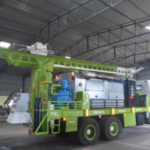
In the global labor market, migrant workers such as Filipino maid (菲傭) represent a significant workforce, often taking on roles that are underpaid and undervalued in their home countries. At the heart of these roles lies a complex web of legalities, rights, and protections that are not always transparent to the worker. For those from the Philippines, international employment as domestic workers can be both a pathway to economic betterment and a potential minefield of vulnerability.
This article will dissect the legal framework and practical rights available to these workers, with a focus on the Filipino experience.
Understanding the Landscape
Modern Filipino migration patterns are heavily influenced by economic necessity, policy dynamics, and cultural shifts. The Philippines ranks amongst the top senders of migrant workers in the world, due to high domestic unemployment rates and a labor export policy that shapes the flow of its citizens to work overseas. For many, the path to leaving their homeland and finding employment as a maid in the homes of the more affluent is an act of desperation, often trading familiar impoverishment for unfamiliar and alien situations abroad.
Employment Contracts and Labor Laws
One of the first documents that a Filipino maid encounters before even setting foot in a foreign country is the employment contract. This contract is meant to outline the terms of service, including wages, hours of work, rest days, and more. However, the complexity of laws and the lack of transparency often leave domestic workers vulnerable to exploitation or unaware of their true entitlements. Understanding the nuances of the local labor laws and how they intersect with the rights of migrant workers is crucial but challenging for many.
Legal Rights and Protections
A maze of regulations surrounds the protection of overseas Filipino workers (OFWs). The Philippine Overseas Employment Administration (POEA), the Department of Labor and Employment (DOLE), and bilateral agreements between countries work to create frameworks that protect the rights of domestic workers. These rights include the right to fair wages, rest periods, medical coverage, and the ability to keep their passports and travel documents.
Common Challenges and Recourse
Despite the legal scaffolding designed to safeguard rights, Filipino maids frequently encounter challenges that require a deep understanding of the legal process to rectify.
Working Conditions and Abuse
Long hours, isolation, unfair treatment, and even abuse are sadly common experiences for many maids. When these issues arise, knowing how to seek help and who to turn to for support can be daunting.
Repatriation and Legal Assistance
In extreme cases, exploitation can lead to an urgent need for repatriation. Understanding the process for returning home and accessing legal support while abroad can be a literal lifeline for many workers.
Money Matters
Problems with salary payment, illegal deductions, and non-payment of overtime can lead to significant financial hardships. Recovering these lost wages is often a convoluted and lengthy process that tests the resilience of the worker.
Legacy of Strife and Progress
The history of Filipino maids overseas is one of resilience amidst systemic challenges. As stories of success and struggle weave together, there are glimmers of hope in the form of triumphs over unlawful treatment and collective efforts to push for policy changes both in the Philippines and in destination countries.
The Path Forward
To continue improving the lives of migrant domestic workers, a harmonization of international labor standards with domestic legislation must be pursued relentlessly. Education and advocacy play pivotal roles in empowering maids to understand and claim their rights. Equally important is the support that they receive from their home country’s government and from the international community. The path forward is one that demands collaborative efforts between nations to ensure the dignity and welfare of all migrant workers.

















